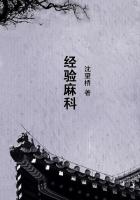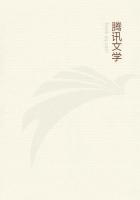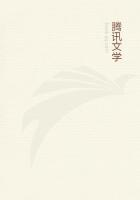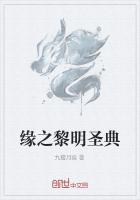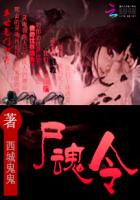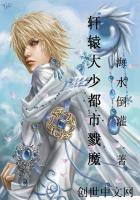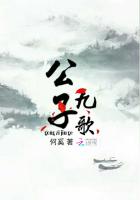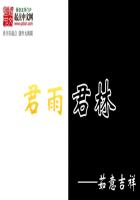The mystic kings of Fire and Water in Cambodia are not allowed to die a natural death. Hence when one of them is seriously ill and the elders think that he cannot recover, they stab him to death. The people of Congo believed, as we have seen, that if their pontiff the Chitomé were to die a natural death, the world would perish, and the earth, which he alone sustained by his power and merit, would immediately be annihilated. Accordingly when he fell ill and seemed likely to die, the man who was destined to be his successor entered the pontiff's house with a rope or a club and strangled or clubbed him to death. The Ethiopian kings of Meroe were worshipped as gods; but whenever the priests chose, they sent a messenger to the king, ordering him to die, and alleging an oracle of the gods as their authority for the command. This command the kings always obeyed down to the reign of Ergamenes, a contemporary of Ptolemy II., King of Egypt. Having received a Greek education which emancipated him from the superstitions of his countrymen, Ergamenes ventured to disregard the command of the priests, and, entering the Golden Temple with a body of soldiers, put the priests to the sword.
Customs of the same sort appear to have prevailed in this part of Africa down to modern times. In some tribes of Fazoql the king had to administer justice daily under a certain tree. If from sickness or any other cause he was unable to discharge this duty for three whole days, he was hanged on the tree in a noose, which contained two razors so arranged that when the noose was drawn tight by the weight of the king's body they cut his throat.
A custom of putting their divine kings to death at the first symptoms of infirmity or old age prevailed until lately, if indeed it is even now extinct and not merely dormant, among the Shilluk of the White Nile, and in recent years it has been carefully investigated by Dr. C. G. Seligman. The reverence which the Shilluk pay to their king appears to arise chiefly from the conviction that he is a reincarnation of the spirit of Nyakang, the semi-divine hero who founded the dynasty and settled the tribe in their present territory. It is a fundamental article of the Shilluk creed that the spirit of the divine or semi-divine Nyakang is incarnate in the reigning king, who is accordingly himself invested to some extent with the character of a divinity. But while the Shilluk hold their kings in high, indeed religious reverence and take every precaution against their accidental death, nevertheless they cherish the conviction that the king must not be allowed to become ill or senile, lest with his diminishing vigour the cattle should sicken and fail to bear their increase, the crops should rot in the fields, and man, stricken with disease, should die in ever-increasing numbers. To prevent these calamities it used to be the regular custom with the Shilluk to put the king to death whenever he showed signs of ill-health or failing strength. One of the fatal symptoms of decay was taken to be an incapacity to satisfy the sexual passions of his wives, of whom he has very many, distributed in a large number of houses at Fashoda. When this ominous weakness manifested itself, the wives reported it to the chiefs, who are popularly said to have intimated to the king his doom by spreading a white cloth over his face and knees as he lay slumbering in the heat of the sultry afternoon.
Execution soon followed the sentence of death. A hut was specially built for the occasion: the king was led into it and lay down with his head resting on the lap of a nubile virgin: the door of the hut was then walled up; and the couple were left without food, water, or fire to die of hunger and suffocation. This was the old custom, but it was abolished some five generations ago on account of the excessive sufferings of one of the kings who perished in this way. It is said that the chiefs announce his fate to the king, and that afterwards he is strangled in a hut which has been specially built for the occasion.
From Dr. Seligman's enquiries it appears that not only was the Shilluk king liable to be killed with due ceremony at the first symptoms of incipient decay, but even while he was yet in the prime of health and strength he might be attacked at any time by a rival and have to defend his crown in a combat to the death. According to the common Shilluk tradition any son of a king had the right thus to fight the king in possession and, if he succeeded in killing him, to reign in his stead. As every king had a large harem and many sons, the number of possible candidates for the throne at any time may well have been not inconsiderable, and the reigning monarch must have carried his life in his hand. But the attack on him could only take place with any prospect of success at night; for during the day the king surrounded himself with his friends and bodyguards, and an aspirant to the throne could hardly hope to cut his way through them and strike home. It was otherwise at night. For then the guards were dismissed and the king was alone in his enclosure with his favourite wives, and there was no man near to defend him except a few herdsmen, whose huts stood a little way off. The hours of darkness were therefore the season of peril for the king. It is said that he used to pass them in constant watchfulness, prowling round his huts fully armed, peering into the blackest shadows, or himself standing silent and alert, like a sentinel on duty, in some dark corner. When at last his rival appeared, the fight would take place in grim silence, broken only by the clash of spears and shields, for it was a point of honour with the king not to call the herdsmen to his assistance.


